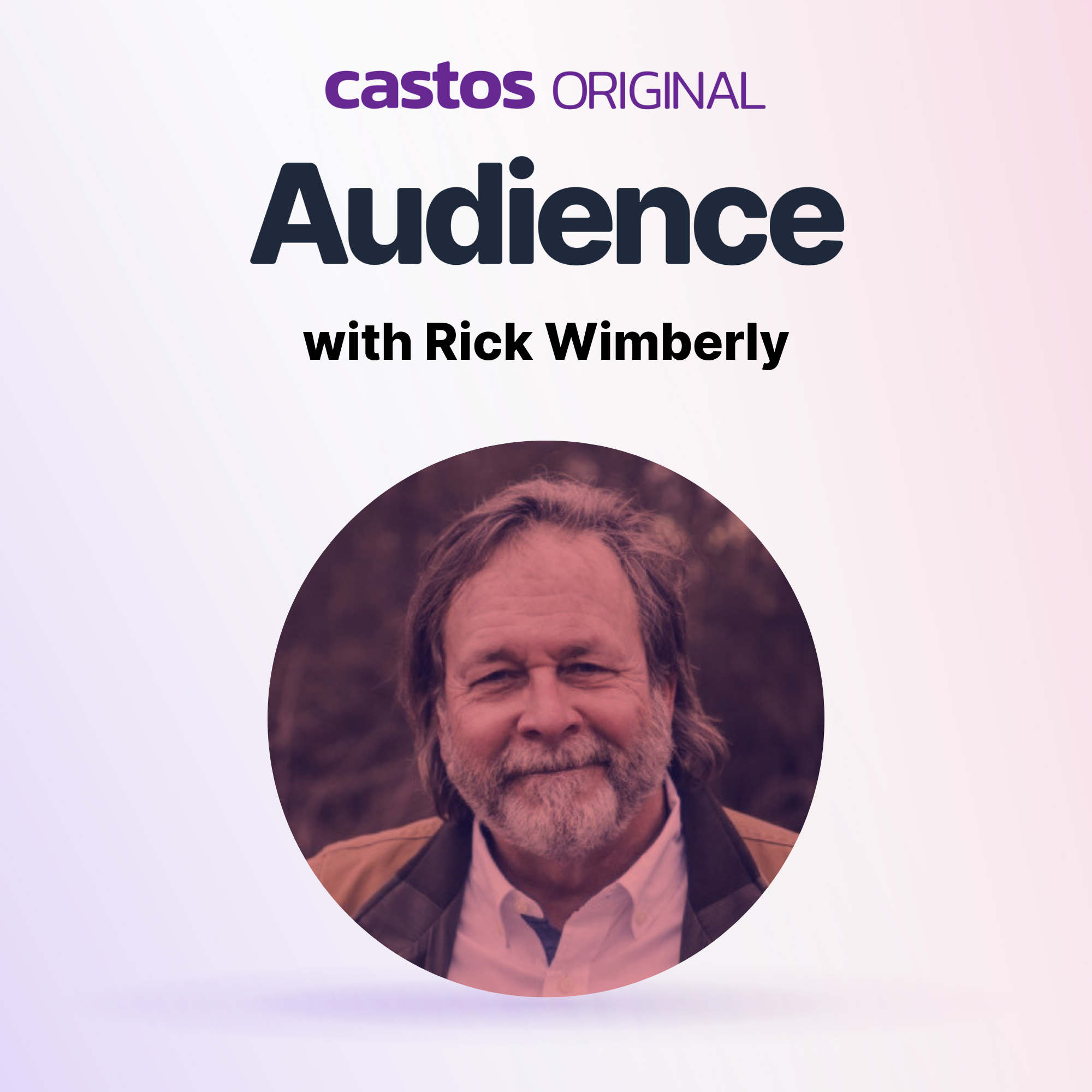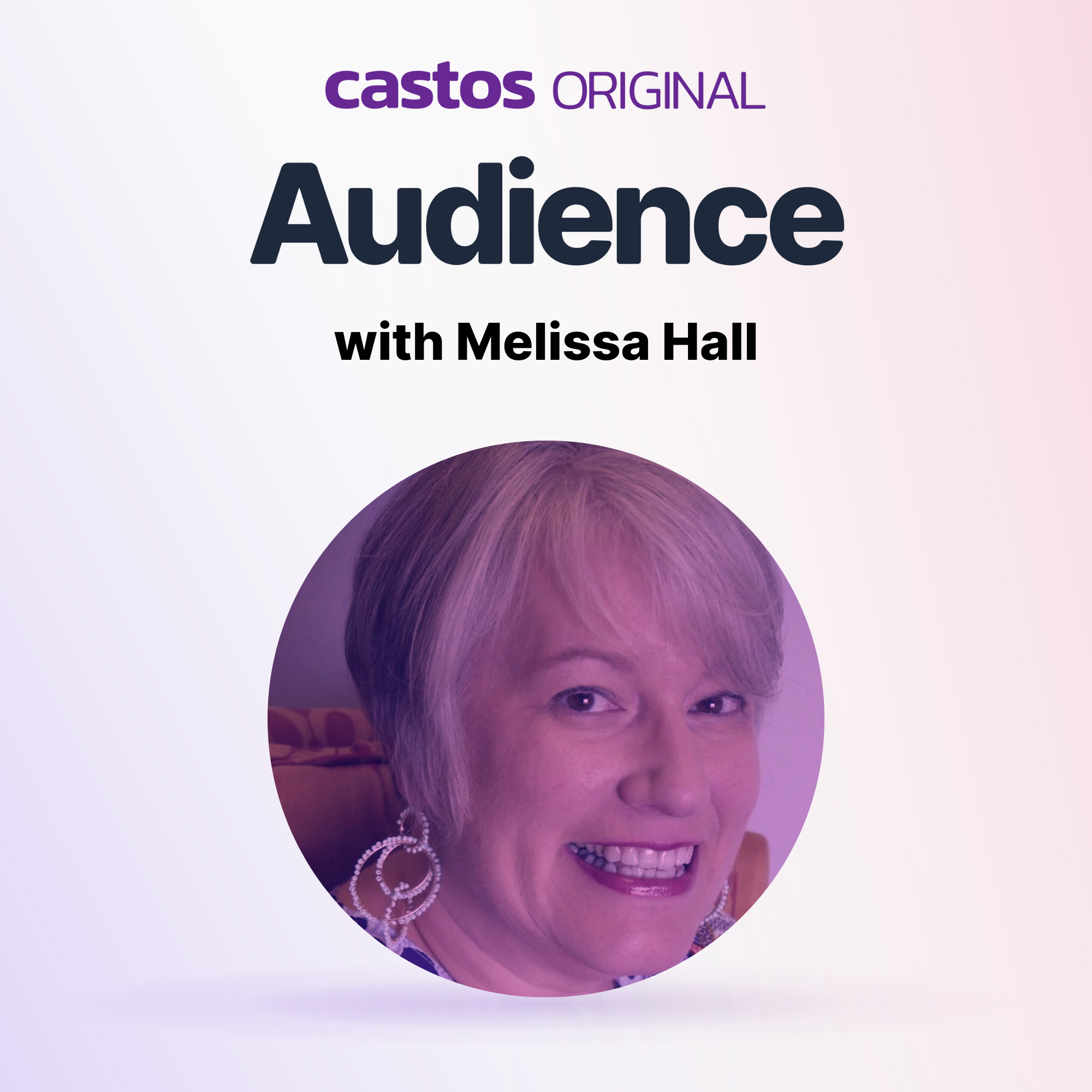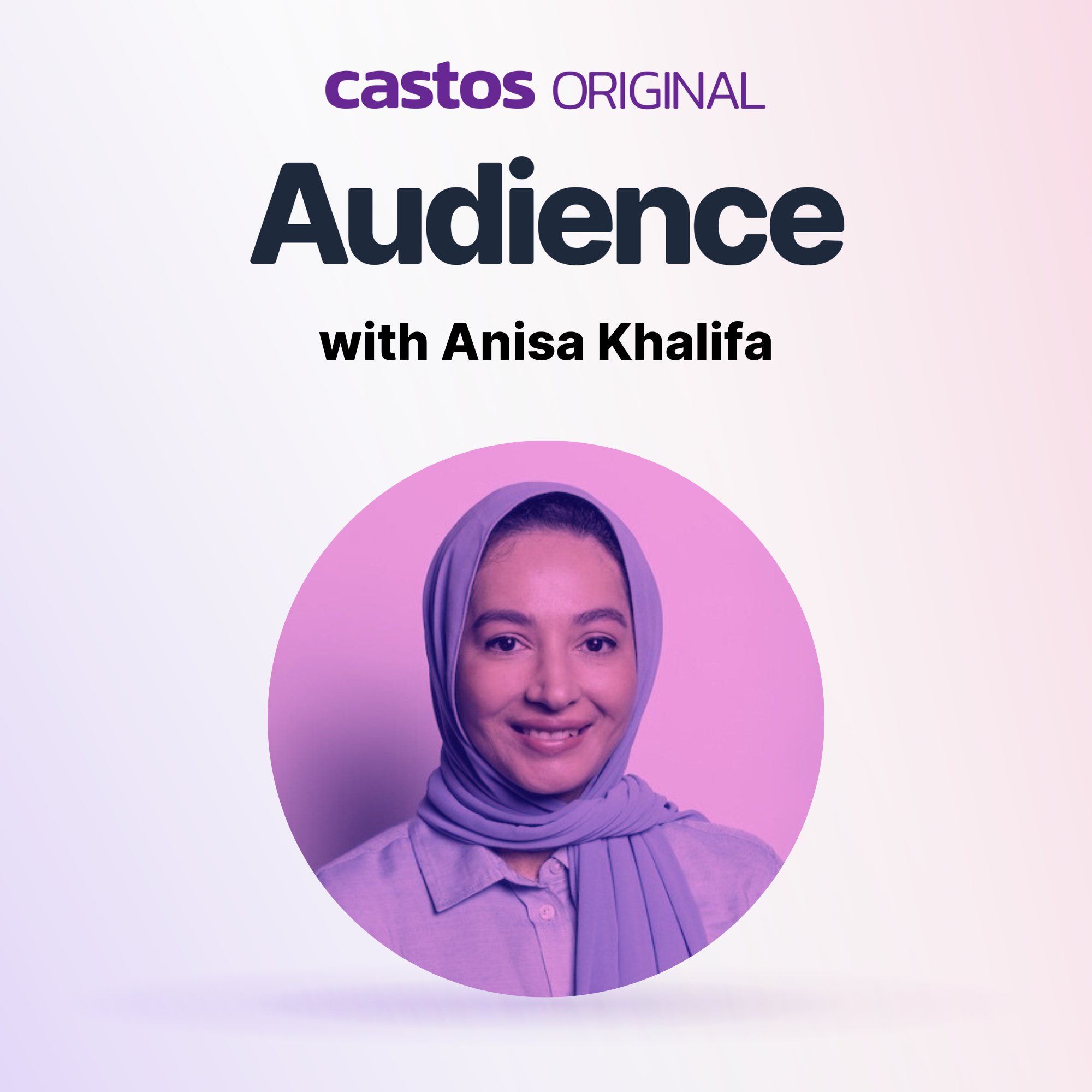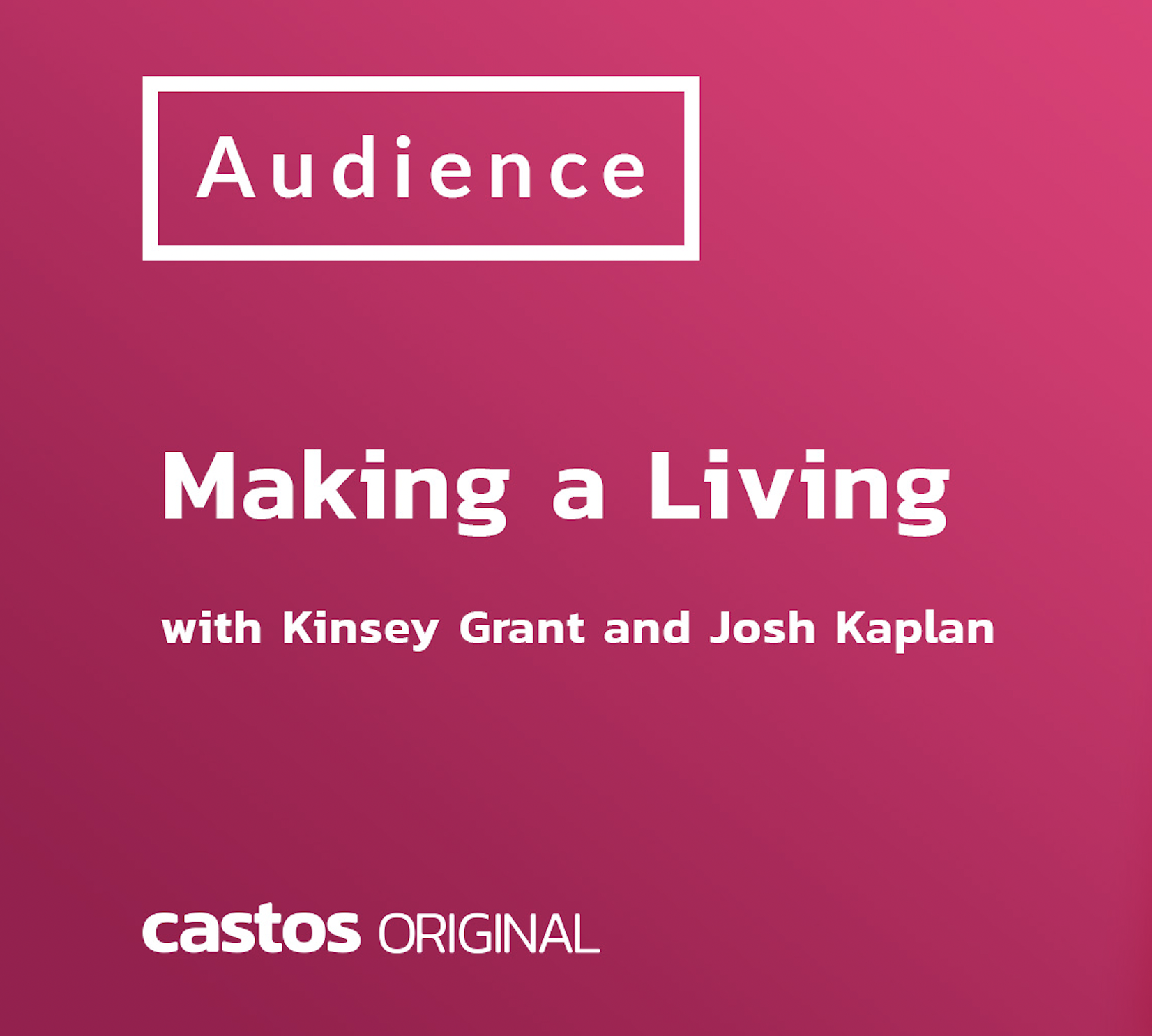[00:00:01] Speaker A: Think about your favorite thing, whatever it might be. Maybe it's a movie you saw Amelia ate or a vacation that you took.
Now think about how you describe that thing to your friends.
If it's a vacation, you probably tell them about the very best moments and exclude the things that don't matter as much, like the drive to the airport or how the coffee at the hotel tasted.
That's what Rick Wimberley does when he makes his podcast.
[00:00:28] Speaker B: Doing it the way I do it allows me to listen more carefully. It allows me not to worry about the flow and to look for moments moments that will be particularly informative or inspiring.
[00:00:47] Speaker A: Next, Rick takes us inside his podcast, myths of Selling to Government, to talk about how he creates memorable moments in each episode.
My name is Stuart, and this is Audience, a Casos original series where we go behind the scenes of all kinds of different podcasts to explore their creative process real quick. Before we get to all the creative stuff, here's a note for all of our podcasters out there. Creativity is the most important part of the process, and without it, your podcast or your show won't go very far. But you also need a support system, aka. Money.
We can help you there. Casos lets you monetize all of your episodes, even the old ones, with a press of a button. There's no chasing sponsors, no extra editing work, none of the headache. You can even tap into your own support network. Let your audience directly support your podcast through one time or recurring donations with castus commerce. For more information, check out the links in our show notes.
Okay, let's get back into it.
[00:01:58] Speaker B: I had taken up an interest in sailing, and I borrowed my uncle's hobicat for a summer, and Ron and I would sneak off from work and go sail that hobicat in the Atlantic Ocean off place called a hunting island.
[00:02:18] Speaker A: Rick's life is full of these kinds of moments. Interesting things just seem to always happen to him.
[00:02:25] Speaker B: We got out there, and the wind was just perfect, and I couldn't resist getting off course. And eventually, we capsized the Hobie cat after a little while. And capsizing a Hobie Cat is not a big deal. You can usually write one right away. But at the time, we didn't know that the hoby had a bad leak in one of the pontoons. And we battled and battled and battled for hours and hours and hours, and night came. It got colder. So Ron and I were and are very good friends and have a lot of trust in one another. And so we made a pact that we would stay with that Hobie Cat until the last piece of it sunk.
[00:03:12] Speaker A: Obviously, they made it out alive. The Coast Guard eventually found them, and now it's one of those moments he can laugh about.
Rick's one of those guys that you can talk to for hours and hours and the types of moments he shares with you are crazy and believable at the same time.
[00:03:27] Speaker B: I was a morning DJ on a very popular Top 40 station, so a lot of the adventures that I could share with you I probably wouldn't share in the podcast. It was kind of a rock and roll time and I was in the Macon, Georgia market and it was when Capricorn Records and Southern Rock was at its heyday. So there was a lot of interaction we had with bands like the Almond Brothers and Wet Willie and Marshall Tucker. And one day Wolfman Jack came to town and the program director at the station I worked for arranged for the two of us to go pick up Wolfman, his wife and his manager at the airport in Atlanta, an hour and a half away.
And so we thought he ought to have a limousine. So we went to the local funeral home and asked if we could borrow a limousine. And so we headed off to Atlanta and picked up Wolf and his manager and his wife and just had a delightful time from there. And then he was a guest on my show the next morning and then we kind of handed him off to a nearby community and we got a police escort to help us do that. And somewhere there is a picture of Wolfman and me sitting on a Macon, Georgia police officer's motorcycle.
[00:05:07] Speaker A: Another moment Rook seems to remember is how his journey in radio began.
[00:05:12] Speaker B: When I was twelve years old, my dad delivered a can of paint to the radio station across the street from the paint store. He ran and I went with him and I walked in and I was just in love. I thought, this has got to be the coolest thing that anyone can ever do is sit at a table with a bunch of records around you, talking occasionally and having a lot of switches to flip. So it took me several years to talk them into giving me a job. But I started working full time in the local radio station when I was 15 and by the time I became a TV news anchor I had had quite a few adventures in being on the air. On the radio side.
[00:06:06] Speaker A: His career would take some surprising twists and turns and he ended up in a very niche business.
These days he works as a government sales consultant, which I got to admit, it took me a long time of talking to him before I fully understood exactly what that means.
[00:06:23] Speaker B: It can mean anything. The government buys absolutely everything. I mean, the government buys podcast services, the government buys eyeglasses, the government buys shoots. I'm looking at shirts, it buys lemons, it buys glasses. I'm just looking at your screen and rattling off some things I see on your screen. The government buys everything.
But selling to the government is a little bit different than selling to the corporate world, but the difference that the fundamentals are the same. And so what we do a lot of is helping people overcome the differences, help them establish realistic expectations.
It's kind of hard to understand, but over the years we've developed tools that we use, practices that we use that help make that sales cycle shorter. It's still longer.
So we take those fundamentals and relate them to the government market where the environment is different but the fundamentals are the same. If you can't build relationships and if you can't present good value and operate with the utmost of integrity at all times, you really shouldn't waste your time trying to sell to the government.
[00:07:57] Speaker A: He even wrote a book on the subject called Seven Myths of Selling the Government.
It was kind of a big hit and people kept asking him if there was an audio version of the book. So he just decided to use his skills as a radio DJ to make a podcast about it.
[00:08:12] Speaker B: I have a hearing issue, so I'm not a great consumer of podcast or anything that's purely audio and so I wasn't familiar.
I hadn't developed podcasts that I was particularly fond of because it was just awkward for me to listen to them, particularly if they're long, because I have Add in addition to declining hearing. So I said what the heck, though, maybe I should try this podcasting. And I clearly had the basis for content and I have a lot of experience editing audio and producing audio and started working on it and found out that I enjoyed doing it and fairly quickly developed a following. It's a very niche topic.
[00:09:12] Speaker A: When it came time to design the podcast, rick's background in radio came in handy.
[00:09:18] Speaker B: I worked for actually a chain of state radio networks and all I did all day was interview people and then cut them in the responses into snippets and write copy around it. And yes, I did interview shows, but I don't think I was as good at that as I am at chopping up audio pieces.
My mind strays quite a bit and if I have a question, I just want to blurt it out. I don't want to wait until the appropriate time. Interviewing is a very special skill and while I can interview to get answers, I don't feel like I'm strong at interviewing to carry on a conversation. And over time I've learned to, I think, make it more interesting and actually have learned to make the episode shorter and for the most part they're narrative.
I can tell a story with audio, but I have done some interviews. When I do them though, I do them more in the NPR style where I don't include my questions and I do a lot of editing, but those have been some of my, I think, best episodes and have been ones that have had some of the highest download numbers.
[00:11:01] Speaker A: This shorter punchier method he's developed means his episodes tend to be pretty short, like five to six minutes long usually. And because he's typically recording closer to an hour's worth of tape, he can pull out the very best moments, so his listeners hear only the best parts. It's a pretty good listening experience.
[00:11:20] Speaker B: Well, it's also a good listening experience for me as well, in the sense you make a real nice connection that doing it the way I do. It allows me to listen more carefully and it allows me not to worry about the flow and to look for moments, moments that I think will be particularly informative or inspiring. I do voice acting and have done, of course, voice work all my life, although you couldn't tell by the hoarseness in my voice. But I do a good bit of it. I do podcast, I've done characters, I do commercials, oddly enough, partly because during COVID I grew a beard and let my hair grow out. And I'm a 68 year old fellow and I've got quite a gray beard. And on some of the casting sites that I use for voice acting. And I had a good friend take some great shots. There are some good shots of me. And so I've been getting on camera and even on stage work, which I didn't expect. But all of that is about creating moments, and that has to be true in podcasting. And so if I can string together some moments as opposed to rambling like I'm doing now, then I can make it, as you said, a better listening experience. And in an interview, what the host wants is those moments. It could be a sentence, it could be a paragraph, it could be an emotion.
[00:13:07] Speaker A: Moments to hear this in practice, Rick agreed to share an entire episode with us right here. It was from June 14, 2023. And it's called you need patience and persistence to build your government pipeline. Let's check it out.
[00:13:24] Speaker C: The myths of selling to the government. If you're using traditional sales techniques to sell to government, you're doing it wrong.
The podcast is brought to you by government selling solutions. Government Selling Solutions selling and marketing to the government for years, quite successfully, thank you. Now. Here's Rick.
[00:13:45] Speaker D: I was conducting a seminar for a government sales team. I had customized the session for what they wanted research, qualifying leads, building relationships, you know, that sort of thing. It was very interactive, like, I like them. I can always depend on these sessions evolving into a discussion of the long sales cycle for winning government contracts. In this session, one of the team members said she had been successful in the B two B world. She said she had been warned that government sales cycles were longer, but figured that she was different and could close them faster. A couple of years later, she hadn't closed much. I asked her to talk about her pipeline and what she was doing to try to move things forward.
She was doing the right things. She had been thorough, very thorough. I asked her to talk about her prospecting activity. Again, very thorough and being a good questioner. She ended her answer with a question. What am I missing? What can I do better?
I thought a moment, then told her that she was not going to like what I had to say. You've got to give yourself a break. Trust yourself. Be patient. And no, she didn't like it. That's easy for you to say, she said. With barely a smile. I told her that I knew something she didn't know. She was about to take off. Her first big deal was about to close, and others would soon follow.
Now, they were paying me for a coaching session, not to tell their fortunes, but I was confident where I stood. Her good work was about to pay dividends. How'd I know? Remember, I had asked her to explain what she was doing to move her accounts forward. Then I asked her about her prospecting activities. From her answers, I knew she was doing the right things. Researching thoroughly, asking lots of questions, listening carefully to the answers, providing meaningful information, asking more questions, being forthright, even candid. Building relationships, becoming trusted, oh, and asking more questions at the same time. She was cultivating new opportunities in her frustration and desire to be successful. She wasn't relying only on the accounts in her pipeline, but also looking for new prospects. She was persistent in her persistence. She wasn't nagging her prospects. She was communicating when she had something helpful to say. And she was constantly building her pipeline, perhaps out of frustration that her deals weren't closing at the speed she would have liked. Now she was falling short on patience, but she would soon learn that lesson as her deals started closing. And they did. My prediction was correct.
You know, government sales move at their own pace. Sometimes it's a mystery why they follow the pace. They do things you think will happen quickly don't. And things that you think will take a long time, don't. It's hard, nay, impossible to accurately predict. That's why you must be persistent in not only moving your prospects forward, but finding new ones through your research and prospecting. If you're persistently asking lots of good questions, listening carefully. Oh, and by the way, bad questions are good too. But asking a lot of questions, listening carefully, building value, building relationships. You can afford patience because the payoff will come.
If you're interested in a seminar like I did with this team, just let us know. We'll start with an exploratory free zoom so you can ask me your questions, and we can sync up to make sure we can cover those things that are most valuable to you and your team at the time. You can email
[email protected] or go to the Government Selling Solutions website to establish contact. Other services are available, too.
[00:18:13] Speaker C: Today's episode has been brought to you by Government Selling Solutions. Government selling solutions getting government sold.
[00:18:26] Speaker A: Man, you can tell just from listening that Rick is passionate about this stuff.
Selling government contracts might seem mundane on the surface, but to him, it's a public service.
[00:18:37] Speaker B: I have a lot of passion about it, and I think selling to the government is a noble, noble thing. Both of my parents worked for the government, and my dad was an educator after he ran the paint store.
And my mom was the Air Force's first female program manager of the year.
And she was a civilian, and she was a muckety muck. And she passed away a few months ago. And I've learned a lot from her, from just watching her.
And then when I got involved in it, talking to her and asking her what are the important things she needs out of a vendor? And yes, she needs people who can solve the pain, but she needs people she can trust.
[00:19:36] Speaker A: Recently, Rick has taken up acting, and he also does some voice work. His nickname is Voiceover Grandude. And while all these different career twists might seem to be all over the place for Rick, there's a common thread through all of it.
[00:19:51] Speaker B: I did a mystery thriller, and again, I was the grandfather, and again I was parting wisdom to his college aged grandson, who was a journalist. And so there was an interview and the script, it was a 60 Minutes plus podcast, and the two of us were the only actors in it.
But the writer put these incredible moments that the dialogue just the dialogue created the moment. Because the reality is and the secret is that the other actor and I never met each other.
I can't even tell you his name, and I bet he can't tell you mine. So we were doing it in our pieces, but because of the moments that were created in the written script and because of the editing job they did on it, when I heard it, I said, wow, they did a fantastic job. And certainly they're not the only ones who can edit podcast.
And so it certainly made me more interested in listening to more dramatic podcast.
And we have to create these podcasts rather quickly, and then we've got other things we have to do to promote them. Well, that's true in theater and movies and other types of theatrical productions, but people in those spaces, I think, perhaps are more gifted.
Maybe more gifted is not the right word, but more practiced at creating moments. And so if I had some advice to give to podcasters, regardless of what your format is, create those moments.
And a lot of people do that really well.
[00:21:54] Speaker A: You ever been to a party and just end up talking to someone the whole time and they just have story after story after story? I'd be willing to bet Rick is that guy. I never imagined the conversation about government contracts would turn into the conversation that it did.
But for a guy like Rick, who's made a whole lifetime of creating moments, maybe it just comes naturally.
Myths of Selling to Government is available anywhere you get your podcast or on his
[email protected].
Now it's time for our podcasting tip, where our guests bestow some wisdom on the rest of us.
[00:22:31] Speaker B: Hi, I'm Rick Wimberley with the Podcast myths of Selling to government. My tip kind of is drawn from the fact that in addition to doing a lot of consulting to help companies sell to government, I am an actor, a voice actor, recently have become on stage actor and on camera actor. And one of the things that I've observed in working with directors and the pros in this field is that they're constantly looking for those moments, whatever a moment is. And to me, I think as we do our podcast, we too ought to be looking for moments. It could be a turn of a phrase that either you can make or a guest can make. It could be a point that is such a good point that deserves a pause or some space.
But my advice would be look for the moments. Create a moment.
[00:23:35] Speaker A: Audience is a Casto's original series. Our founder and executive producer is Craig Hewitt. Production assistance is provided by Issel Brill, Jocelyn DeVore and Marnie Hills. Our website and logo design is courtesy of Francois Brill, our head of product here at Castos.
All music comes from the Storyblocks library, and this episode was written, edited, narrated, and produced by me. I'm stuart barefoot. Check out Audiencepodcast FM for more episodes or just search for it anywhere you get your podcasts.
Next time on Audience I talk to Anissa Halifa about her new podcast, The Broadside.
[00:24:18] Speaker E: One of the things we're doing is collaborating with other newsrooms and sort of providing a place for these stories to live in another medium. Whether it was originally a radio story that is now being given a little bit more time in the podcast pass form, or if it was a print story or like a digital article, it's just giving it another life.





